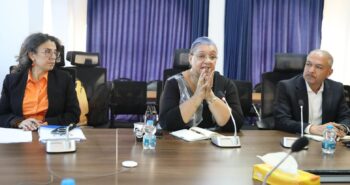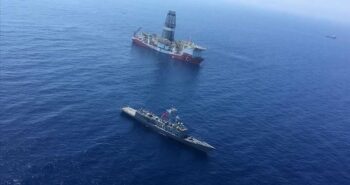
Fourteen years after the fall of Muammar Gaddafi, Libya’s frozen assets remain buried under layers of sanctions, bureaucracy, and mistrust, even as ordinary Libyans still lack the most basic living necessities – fuel, electricity, and public services.
A new initiative led by Libya’s parliament has revived debate at the United Nations. It calls for the appointment of an independent financial auditing body to review Libya’s scattered assets around the world. Supporters believe this could expose mismanagement and restore transparency to one of modern history’s murkiest financial cases. Critics warn, however, that it could deepen divisions and spark legal disputes before answering the key question: In a divided state, who has the right to reclaim tens of billions?
The Roots of the Freeze
In 2011, former U.S. ambassador to the UN Susan Rice read out Resolution 1970 in an emergency Security Council session, marking a turning point in the Libyan asset-freeze saga. The resolution imposed asset freezes and sanctions on Gaddafi’s regime, turning what was meant to be a temporary measure into a global political and economic deadlock. Calls for Transparency successive Libyan governments–east and west–have failed to unlock or manage the frozen assets.
Last month, a parliamentary committee in Benghazi submitted a formal memorandum to the UN, requesting a comprehensive audit of all frozen Libyan assets held in 37 banks worldwide since 2011. The request also seeks accountability from host countries and financial institutions over alleged mismanagement, including unauthorized loans and excessive administrative deductions.
A Push for UN Oversight
Omar Tantoush, head of the Parliamentary Committee on Planning and Finance, told Alhurra that the committee has asked the UN Security Council and its Sanctions Committee to appoint a global auditing firm- similar to the one that audited Libya’s Central Bank.
He added that the committee wants a final report submitted to the Security Council, detailing the location, value, and management of these assets, and reclaiming any illicit profits earned from them.
Lawyer Mohammed bin Shaaban, practicing before the High Courts of England, Ireland and Wales, supports the initiative but warns of legal and political complications:
The move could conflict with national jurisdictions that implemented UN sanctions.
Allowing management or investment of frozen assets, even under UN supervision, might weaken the principle of international sanctions, setting a precedent relevant to Russia or Iran.
Billions Hidden Across Continents
In 2017, the Presidential Council under Fayez al-Sarraj established the Office for the Recovery of State Funds and Management of Recovered Assets (LARMO) to trace and recover stolen Libyan money. But under Abdulhamid Dbeibah’s government (2021), jurisdictional disputes arose, further complicating efforts.
Economic analyst Abdullah al-Amin revealed that around $60 billion had been hidden abroad since the 1990s sanctions era. He said powerful figures are competing for control over this wealth—some of which has been converted to gold deposits in African states or reinvested internationally to evade sanctions.
In 2025, Middle East Eye reported on unannounced talks between the Trump administration and Tripoli officials about partially unfreezing Libya’s assets for joint investment projects with U.S. companies. Analysts warned this could turn Libya’s frozen assets into political bargaining chips, undermining their sovereign nature.
Legal Battles in Europe
Since the UN freeze, Libya has fought dozens of legal cases to regain access to its funds.
It lost a $1.2 billion case against Goldman Sachs in 2016, but won partial compensation in 2017 after settling with Société Générale for €963 million.
The Euroclear case in Belgium remains one of the most complex, involving €16 billion in frozen assets.
In 2025, a Brussels appeals court lifted most restrictions, partially restoring Libya’s control–but UN sanctions still apply.
The Bottom Line
As legal expert Mohammed bin Shaaban notes, frozen funds lose value over time, and Libya has already suffered hundreds of millions in opportunity losses and negative interest costs. Despite occasional wins, the maze of international litigation, political division, and competing jurisdictions keeps Libya’s billions locked away.
Many locks, Too many keys. Scattered across the world’s capitals, the fate of Libya’s frozen wealth remains unresolved.
_______________________




